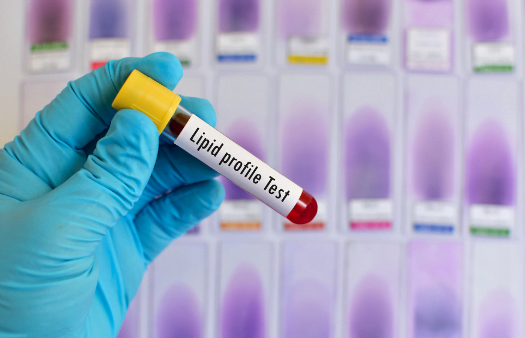HDL-Like Lipoprotein Testing in Veterinary Diagnostics
The measurement of HDL-like lipoproteins in veterinary diagnostics is essential for understanding cardiovascular health and lipid metabolism in animals. This service focuses on the analysis of HDL-like particles, which play a significant role in cholesterol transport within the body. These particles are analogous to human high-density lipoprotein (HDL), but they differ in their composition and function. In veterinary medicine, accurate quantification of HDL-like lipoproteins helps in diagnosing diseases such as atherosclerosis and assessing overall cardiovascular risk.
Accurate determination of these lipoproteins is critical for several reasons. Firstly, it allows for the early detection of lipid disorders that can lead to severe health issues if left untreated. Secondly, it aids in monitoring therapeutic interventions aimed at altering cholesterol levels. Finally, it provides insights into the health status of pets, particularly those with a history or predisposition to cardiovascular diseases.
The HDL-like lipoprotein testing involves a series of steps that ensure precision and reliability. Specimen collection typically requires venous blood samples from animals, which are then processed through advanced analytical techniques such as nuclear magnetic resonance spectroscopy (NMR) or polyacrylamide gel electrophoresis (PAGE). These methods allow for the separation and quantification of different lipoprotein classes.
The acceptance criteria for HDL-like lipoprotein testing adhere to international standards, ensuring that results are comparable across various laboratories. The ISO 15189:2017 standard provides guidelines for quality management systems in medical laboratories, which must be followed to ensure the accuracy and precision of test results. Compliance with these standards is crucial for maintaining the integrity of the testing process.
The instrumentation used in this service includes sophisticated analytical equipment that can differentiate between various lipoprotein subclasses. This enables a comprehensive understanding of lipid profiles, which is vital for effective diagnosis and treatment planning. The use of such advanced technology ensures that results are not only accurate but also repeatable, enhancing the reliability of the testing process.
For quality assurance, we employ rigorous internal controls and external proficiency testing programs. Regular participation in these programs helps to validate the accuracy and consistency of our test results. Our commitment to quality is further demonstrated by our adherence to ISO/IEC 17025:2017, which sets specific requirements for competence of calibration and testing laboratories.
The importance of HDL-like lipoprotein testing cannot be overstated in the veterinary diagnostic landscape. By providing accurate and reliable measurements, this service plays a crucial role in ensuring that pets receive appropriate care and treatment. The ability to detect and manage lipid disorders early can significantly improve the quality of life for animals.
In conclusion, HDL-like lipoprotein testing is an essential tool in the veterinary diagnostic toolkit. Its application allows for precise measurement of these important particles, contributing to better health outcomes for pets by enabling early detection and effective management of cardiovascular diseases.
Why It Matters
The accurate quantification of HDL-like lipoproteins is crucial in the diagnosis and management of cardiovascular diseases in veterinary medicine. These particles are involved in the transport of cholesterol within the body, playing a key role in maintaining lipid homeostasis. Understanding their levels helps veterinarians assess the risk of developing conditions such as atherosclerosis and coronary artery disease.
Early detection of abnormal HDL-like lipoprotein levels is essential for effective intervention. This service allows for timely identification of potential issues, enabling veterinarians to recommend appropriate treatments or lifestyle changes. By providing precise measurements, this testing contributes significantly to the overall health management of pets, particularly those at higher risk due to genetic predispositions or existing conditions.
The significance of HDL-like lipoprotein testing extends beyond mere diagnosis; it also aids in monitoring the efficacy of treatments aimed at altering lipid profiles. This is especially important for pets undergoing long-term therapy, as fluctuations in HDL-like lipoprotein levels can indicate changes in their health status. Regular monitoring through this service ensures that treatment plans are adjusted accordingly to maintain optimal health.
Moreover, compliance with international standards such as ISO 15189:2017 and ISO/IEC 17025:2017 is vital for maintaining the reliability and accuracy of test results. These standards ensure that our testing processes are robust and consistent, providing veterinarians with trustworthy data to guide their decisions.
The importance of HDL-like lipoprotein testing cannot be overstated in ensuring the health and well-being of pets. By offering this service, we contribute to a healthier veterinary diagnostic landscape, ultimately improving the quality of life for animals under our care.
Quality and Reliability Assurance
- Internal Controls: We maintain strict internal controls to ensure the precision and accuracy of all test results. These controls are regularly reviewed and updated to reflect the latest advancements in analytical techniques.
- External Proficiency Testing: Participation in external proficiency testing programs is mandatory for us to validate our test methods and results. This ensures that our performance meets or exceeds industry benchmarks.
- Regular Calibration: All instrumentation used in HDL-like lipoprotein testing undergoes regular calibration to ensure optimal performance. This practice minimizes errors and maintains the reliability of all test results.
- Data Validation: Our data validation process includes multiple quality checks at various stages of specimen processing and analysis. This ensures that all data is accurate, complete, and consistent.
The combination of these rigorous quality assurance measures guarantees that our HDL-like lipoprotein testing service meets the highest standards of reliability and accuracy. Compliance with international standards such as ISO 15189:2017 and ISO/IEC 17025:2017 further reinforces our commitment to delivering precise and dependable results.





